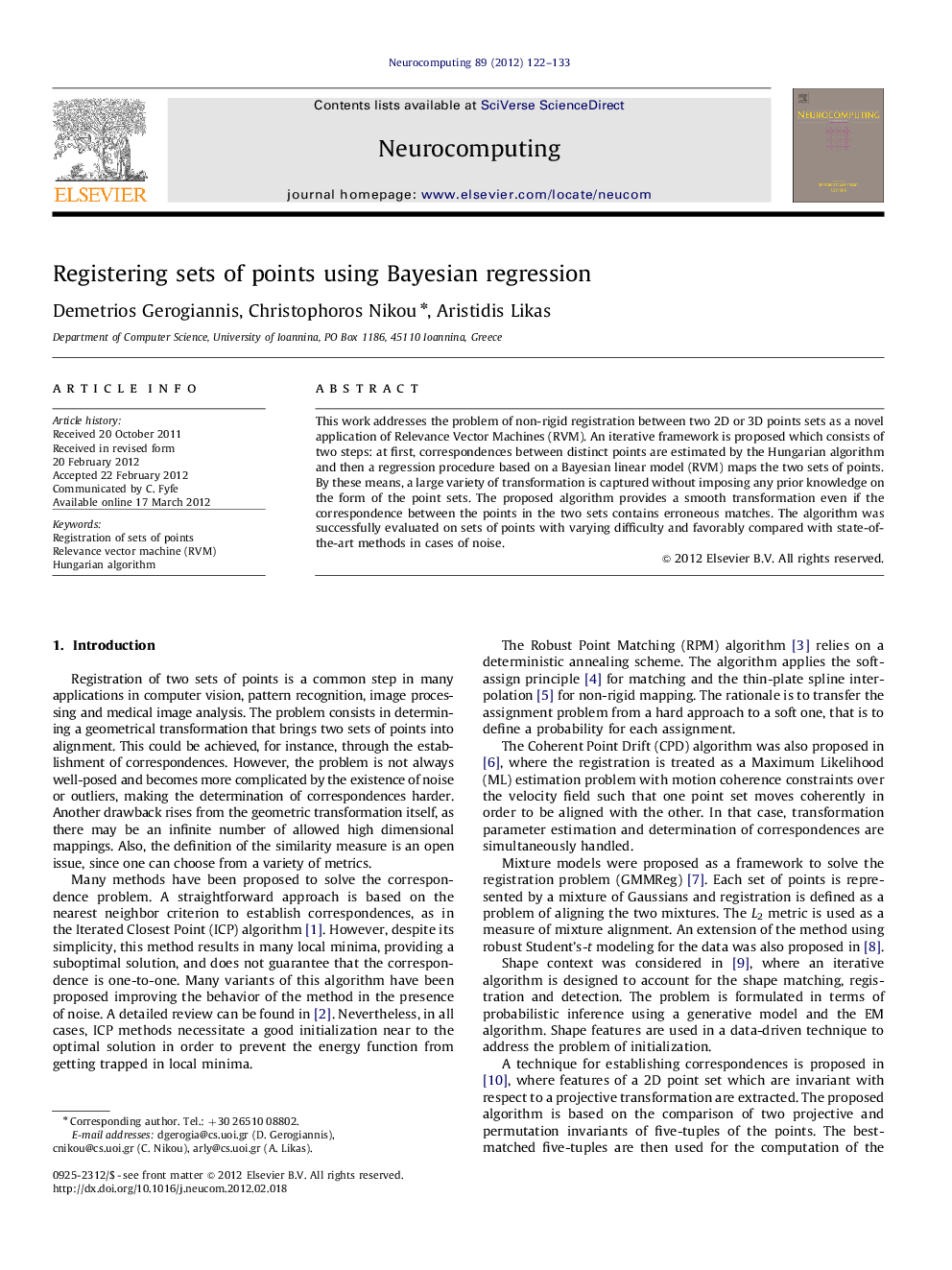| Article ID | Journal | Published Year | Pages | File Type |
|---|---|---|---|---|
| 408099 | Neurocomputing | 2012 | 12 Pages |
This work addresses the problem of non-rigid registration between two 2D or 3D points sets as a novel application of Relevance Vector Machines (RVM). An iterative framework is proposed which consists of two steps: at first, correspondences between distinct points are estimated by the Hungarian algorithm and then a regression procedure based on a Bayesian linear model (RVM) maps the two sets of points. By these means, a large variety of transformation is captured without imposing any prior knowledge on the form of the point sets. The proposed algorithm provides a smooth transformation even if the correspondence between the points in the two sets contains erroneous matches. The algorithm was successfully evaluated on sets of points with varying difficulty and favorably compared with state-of-the-art methods in cases of noise.
► An iterative framework to solve the non-rigid registration problem between point sets. ► Correspondence between points is established by the Hungarian algorithm. ► Bayesian regression to model the transformation between sets of points. ► The method provides a smooth transformation and handles possible false correspondences.
